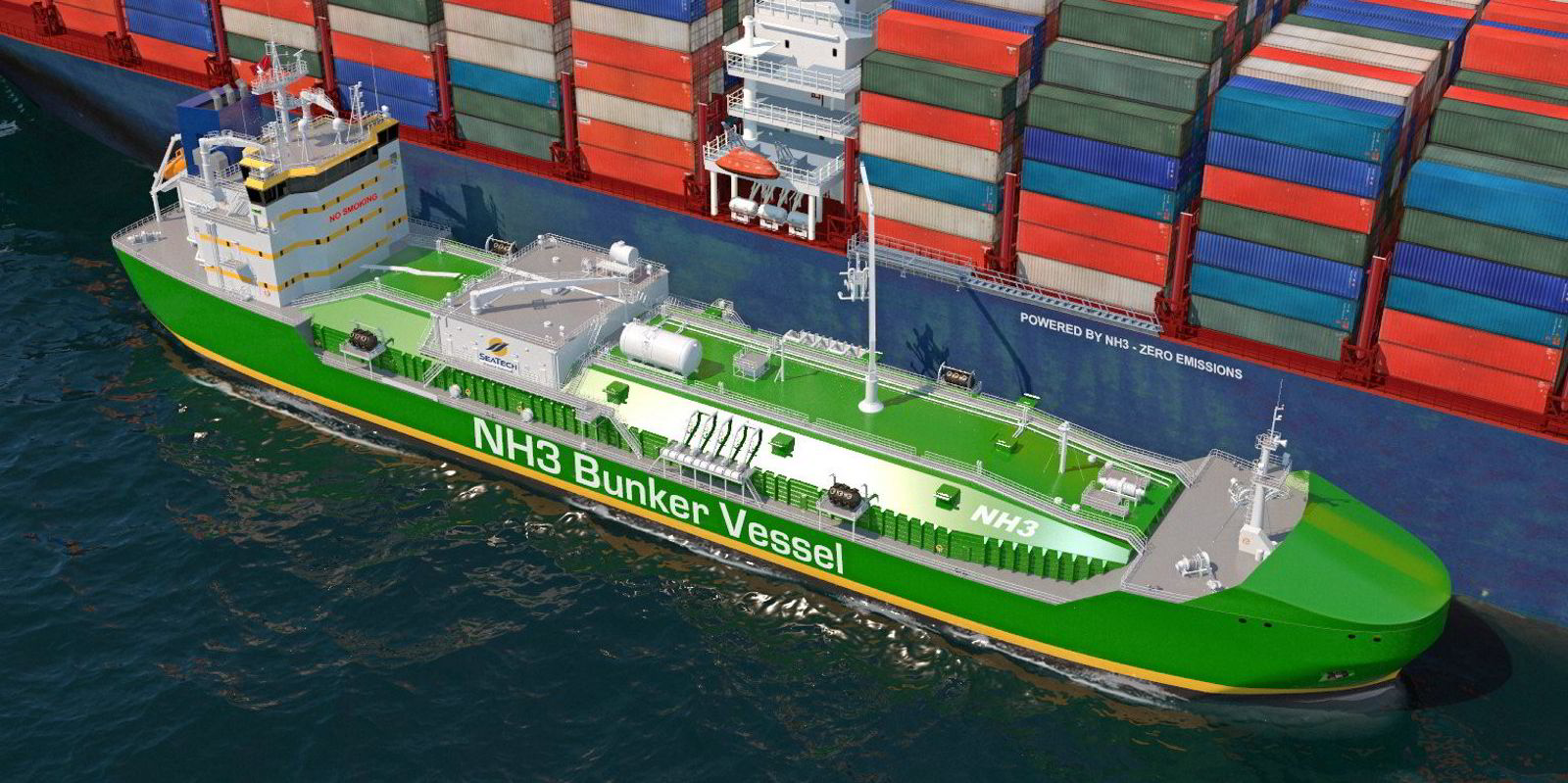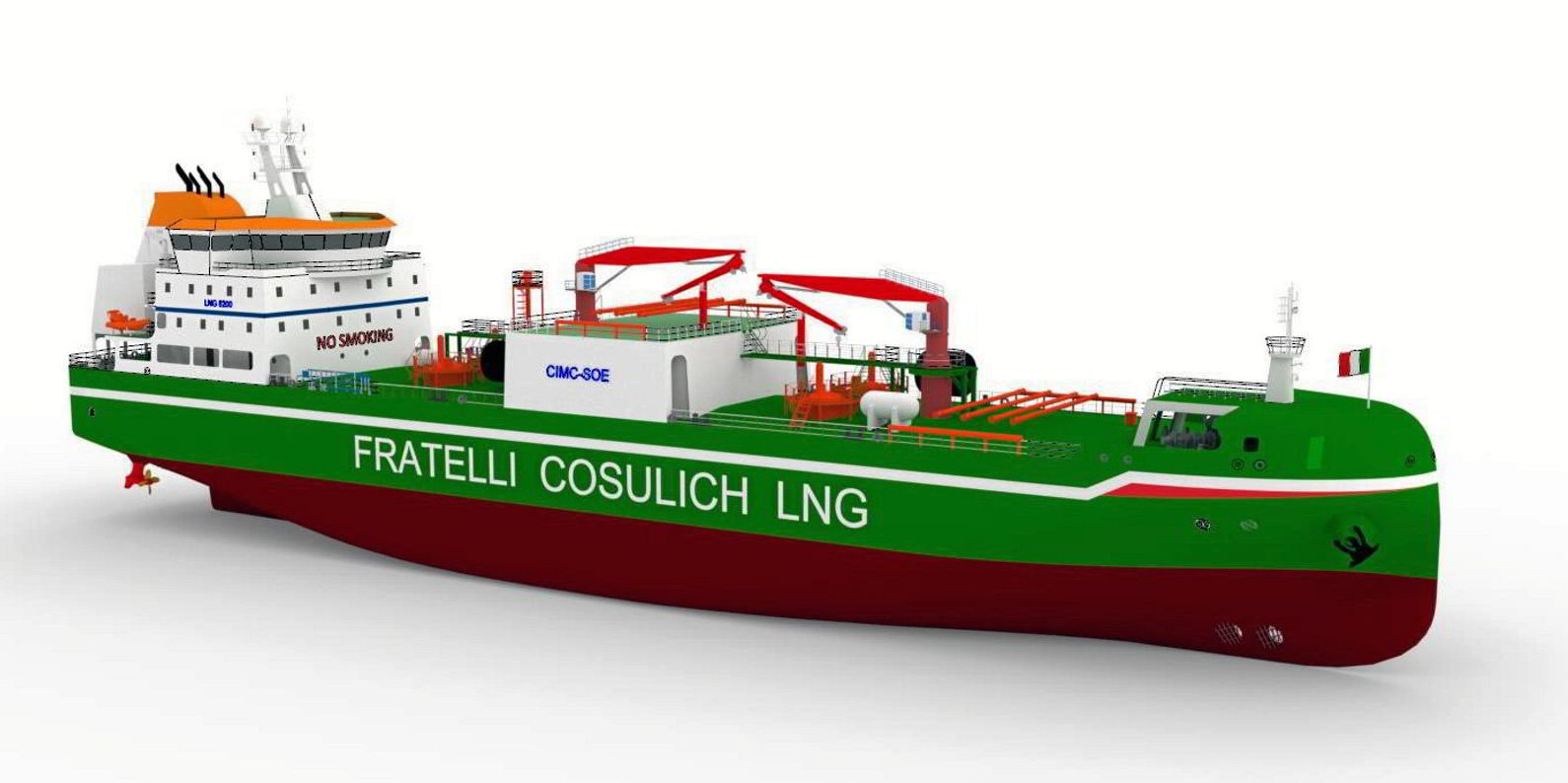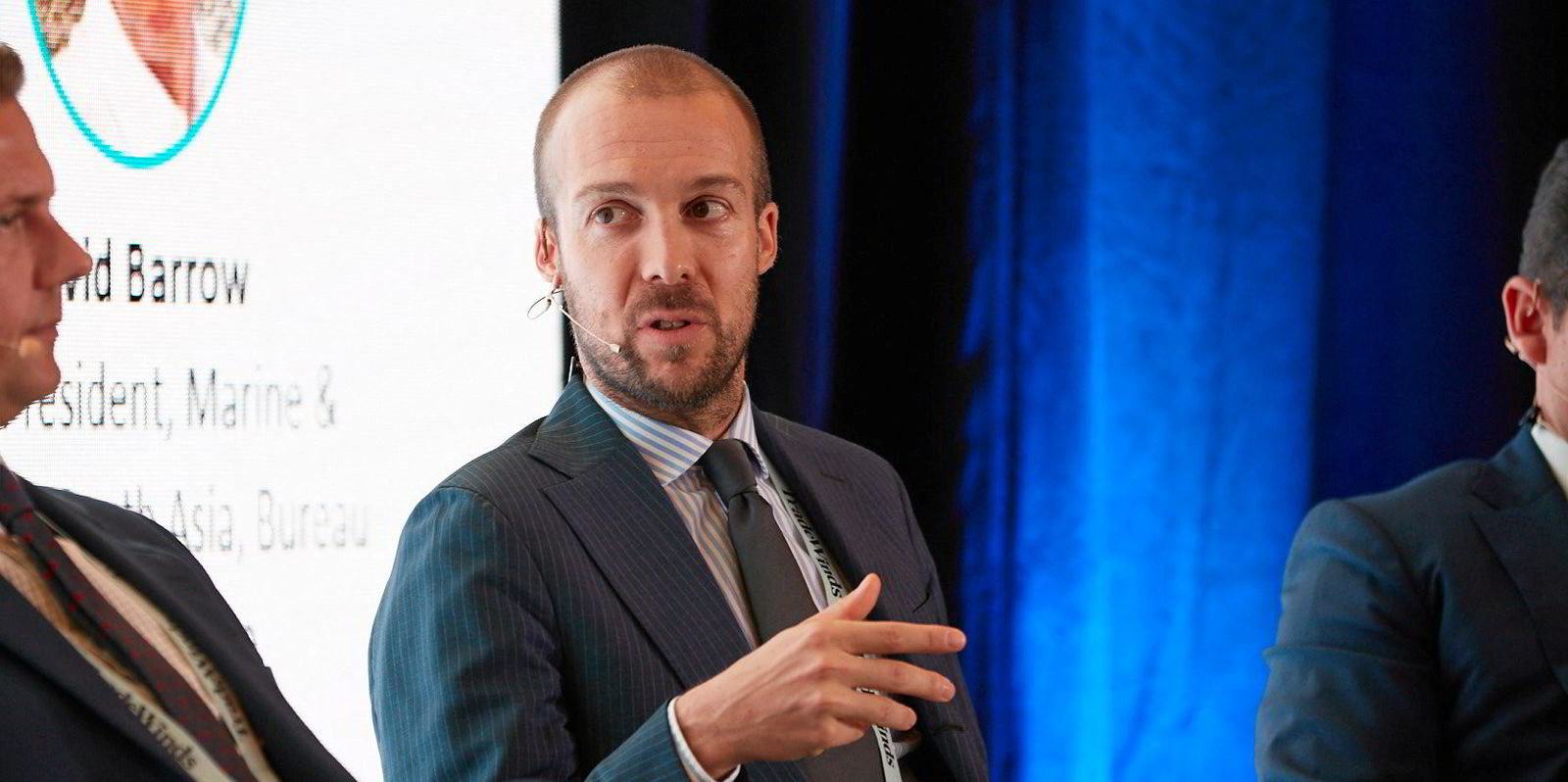Fratelli Cosulich is closing on its first ammonia bunker tanker newbuilding after signing a preliminary deal with a Chinese shipbuilder.
The Italian shipowner said it had signed a memorandum of understanding (MOU) for the newbuild with Nantong CIMC Sinopacific Offshore & Engineering.
Details about the cost of the newbuilding and when it will likely be delivered were not disclosed.
The MOU comes less than a year after Fratelli Cosulich teamed up with compatriot class society RINA and Singapore naval architects SeaTech Solutions to develop an ammonia bunker tanker design.
Under the agreement, SeaTech is focusing on the ship concept development and design while RINA will verify compliance with the applicable rules, particularly those related to the handling of ammonia. Fratelli Cosulich Bunkers will provide the operational data to support and validate the suitability of the ship design for commercial operations.
Ammonia is gaining traction as one of the potential zero-carbon fuels with several Ammonia dual-fuelled newbuilding orders being placed.
Fratelli Cosulich says having available bunkering facilities, such as ammonia bunker tankers, will be crucial to provide confidence to the shipping destiny to embrace the alternative fuel.
The company says it is participating in several industry studies, including the ammonia bunker safety study led by Singapore’s Global Centre for Maritime Decarbonisation.
Fratelli Cosulich already has experience in building complex vessels at the shipyard.
In May 2021, it ordered two 8,200-cbm LNG bunker tankers from the same shipbuilder for $45m per vessel. The first is due for handover in June 2023.
Fratelli Cosulich said the shipyard’s experience will be “very important for this forward-looking project”.
There are said to be 117 ammonia-ready vessels on order as of the end of July 2022, according to data compiled by Clarksons.
Italy’s Grimaldi Group recently told TradeWinds that it was hatching an order worth up to $1bn for 10 ammonia-ready car carriers to be built in China.
The vessels, with a capacity for 9,000 cars, will be built at shipyards within China Merchants Group, according to managing director Emanuele Grimaldi.





